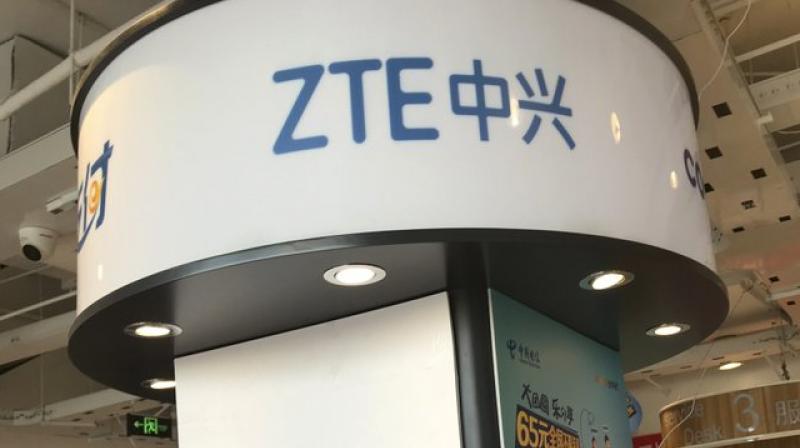US lawmakers cut anti-ZTE measure from defense bill

US lawmakers cut measures from a defense bill that would have reinstated sanctions on China’s ZTE, abandoning an attempt to punish the company for illegally shipping US products to Iran and North Korea.
Lawmakers from both parties have been at odds with President Donald Trump over his decision last week to lift his earlier ban on US companies selling to ZTE, allowing China’s second-largest telecommunications equipment maker to resume business.
An amendment backed by two Republicans and two Democrats would have reinstated the sanctions but was stripped out of the must-pass defense policy bill, lawmakers said on Friday.
The change was made as lawmakers sought to hammer out differences between the Senate and House versions of the National Defense Authorization Act, which authorizes military spending but is generally used as a vehicle for a broad range of policy matters.
The ZTE measure was co-sponsored by Republican senators Marco Rubio and Tom Cotton, Democrat Chris Van Hollen, and Chuck Schumer, the top Democrat in the Senate.
Schumer said in a statement that he opposed removing the provision.
“By stripping the Senate’s tough ZTE sanctions provision from the defense bill, President Trump – and the congressional Republicans who acted at his behest – have once again made President Xi and the Chinese government the big winners,” he said in a statement.
Rubio called the change “bad news” in a tweet, lamenting that it increased chances ZTE stays in business.
Van Hollen lashed out at Republican leaders for refusing to lend their backing.
“Despite bipartisan support to put American national security before jobs in China, the Republican leadership refused to take any real, substantive action on ZTE. Instead, they joined President Trump in bowing to Beijing. It’s weak and shameful,” he said in a statement.
ZTE could not immediately be reached for comment.
ZTE had made false statements about disciplining 35 employees involved with illegally shipping US-origin goods to Iran and North Korea, Commerce Department officials said. That led to a ban ordered by the department in April that forced US companies to stop selling US components to ZTE for its smartphones and networking gear. Without these goods, it largely ceased major operations.
The Commerce Department removed the ban on ZTE in mid-July, shortly after the company deposited $400 million in a US bank escrow account as part of a settlement reached last month. The settlement also included a $1 billion penalty that ZTE paid in June.
A US investigation into ZTE was launched after Reuters reported in 2012 that the company had signed contracts to ship hardware and software worth millions of dollars to Iran from some of the best-known US technology companies.
Click on Deccan Chronicle Technology and Science for the latest news and reviews. Follow us on Facebook, Twitter.

